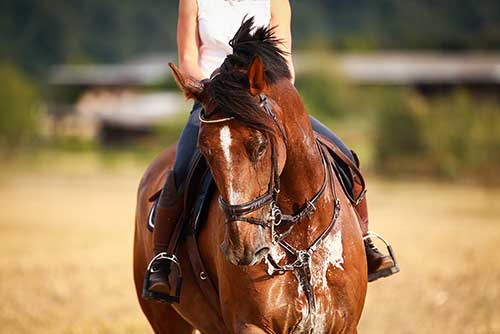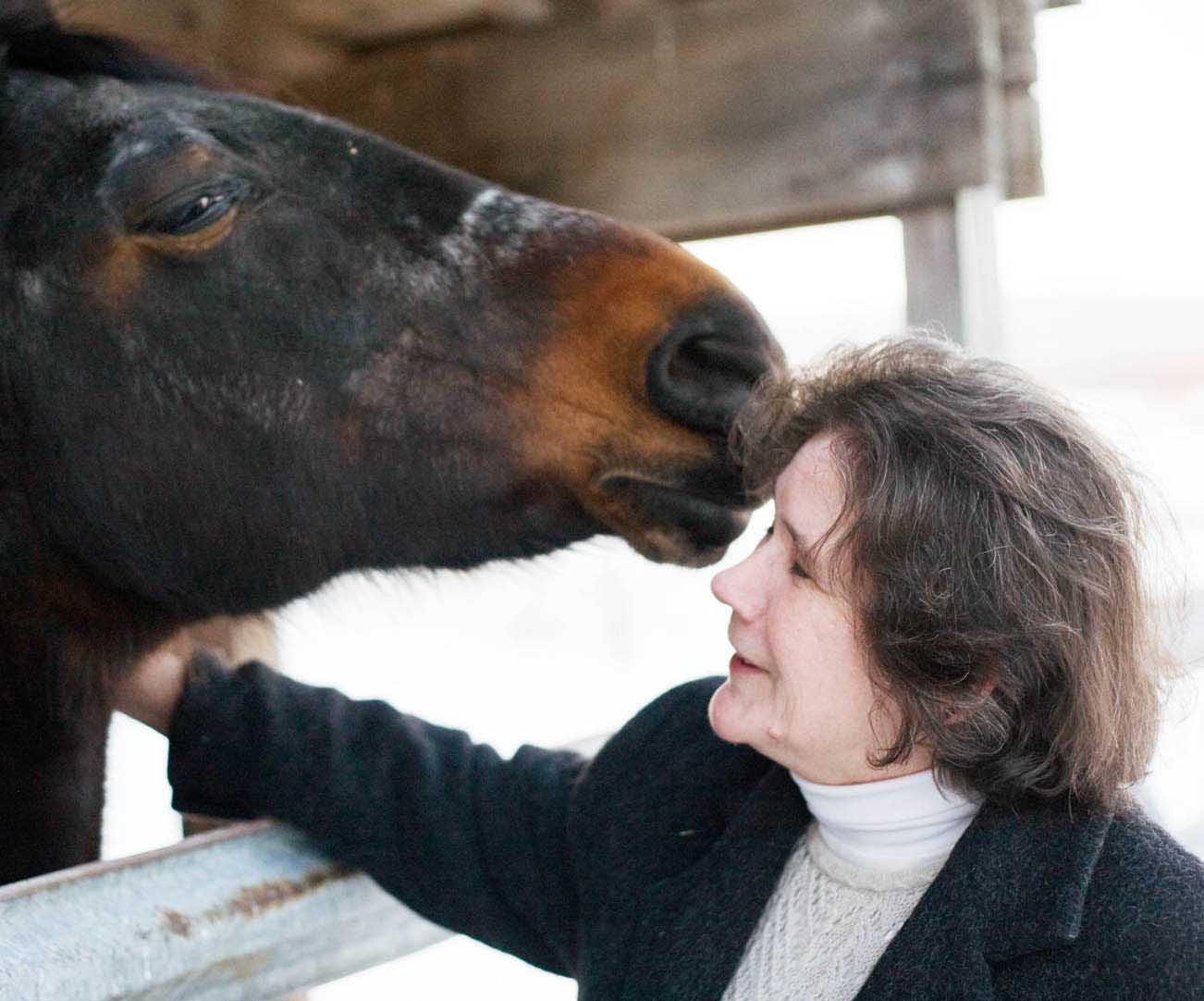
Even mild dehydration can have an effect on performance. Once you know the basics, it's not that difficult to supplement electrolytes correctly, but many people don't know how - and the consequences may be taking more of a toll than is realized.
Electrolytes are minerals that exist in the body in their free, ionized form - i.e. carrying an electrical charge. Cations like calcium, potassium and sodium have positive charges. Anions like chloride, bicarbonate and sulfate are negative.
Movement of electrolytes makes excitatory activity possible, such as muscles contracting, nerves firing and the heart beating. Electrolyte concentrations and gradients also allow the body to hold normal amounts of water (hydration) and the kidneys to adjust the concentration of urine.
Sweat is a major avenue of loss for sodium, potassium, chloride and to a lesser extent calcium and magnesium, but it's not the only avenue.
The horse also has daily endogenous losses in urine, sloughed cells, mucus and the digestive tract. Those losses must be met by the diet on a daily basis. Failure to do that is one major reason why even horses getting electrolyte supplements are often deficient and dehydrated. These baseline daily losses are 10 grams sodium, potassium 25 grams, chloride 40 grams.
Hay takes care of baseline potassium needs at an intake as low as 1% of body weight. Chloride requires closer to 2% of body weight, but some will also come from salt (sodium chloride). Sodium requirements have to come from salt. The baseline requirement for sodium can be met by approximately 2 oz of salt in hot weather = one stall size salt lick per month. Salt may also come from supplements, commercial feeds or be added to feed or sprinkled on hay.
Once the baseline requirements are adequately met, you can work on replacing sweat losses. At low rates of sweat loss, the horse will average losses of approximately 10 grams sodium, 5 grams potassium and 20 grams chloride per hour. That's a ratio of 2:1:4 for sodium, potassium and chloride. Check to see that your replacement supplement has those correct ratios, or you may be making things worse. Low levels of calcium and magnesium (typically 200 to 300 mg/hourly dose) may also be used. Magnesium losses in particular may be important since many diets are borderline to deficient already.
To determine dosage, calculate average sweat losses as above, then look at the amount per dose on the label. For example, an hour of light sweating needs 10 grams of sodium, so if the product provides 5 grams (same as 5,000 mg) per dose, you need 2 doses. Do not rely on manufacturer's suggestions alone.
Horses already showing signs of electrolyte deficiency and dehydration such as weakness, muscle trembling, thumps, or poor gut motility may also benefit from use of a paste that has a higher amount of potassium as well as additional magnesium and calcium.
It isn't particularly difficult to figure out how much electrolyte supplementation your horse needs. It just takes a few minutes. It's time very well spent, and you will quickly see how much easier and better your horse performs in hot weather.
Uckele Health & Nutrition, maker of CocoSoya®, offers potent electrolyte formulas.
Pro-Lyte Pellets are highly concentrated, low sugar electrolyte for everyday use. Add to feed or water for fast results to maintain the balance and flow of vital body fluids and the healthy function of the muscles and circulatory system. Palatable apple-flavored source of Sodium, Chloride, Potassium, and Magnesium for use pre- and post-event.
Lyte Now is a full spectrum electrolyte paste designed to help replenish major electrolytes and trace minerals lost in sweat for horses under stress from summer heat, hard work, training, and physical activity. Supports proper mineral balance to maintain the circulation of vital body fluids and the transmission of nerve impulses. Convenient pre- and post-event to promote an optimal competitive edge.

About Dr. Kellon
Dr. Eleanor Kellon, staff veterinary specialist for Uckele Health & Nutrition, is an established authority in the field of equine nutrition for over 30 years, and a founding member and leader of the Equine Cushings and Insulin Resistance (ECIR) group, whose mission is to improve the welfare of horses with metabolic disorders via integration of research and real-life clinical experience. Prevention of laminitis is the ultimate goal. www.ecirhorse.org/
Uckele Health & Nutrition, maker of CocoSoya, is an innovation-driven health company committed to making people and their animals healthier. On the leading edge of nutritional science and technology for over 50 years, Uckele formulates and manufactures a full spectrum of quality nutritional supplements incorporating the latest nutritional advances. www.uckele.com.
Find our more about caring for your horse in our section on Health & Education.

































